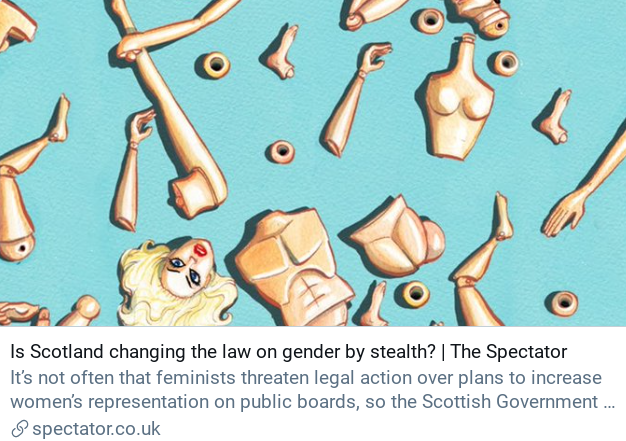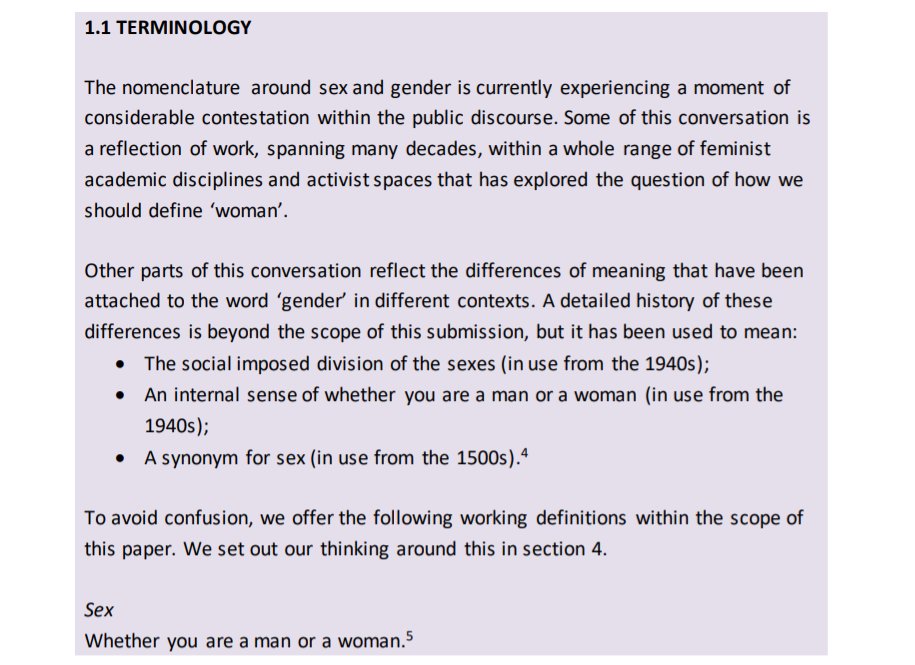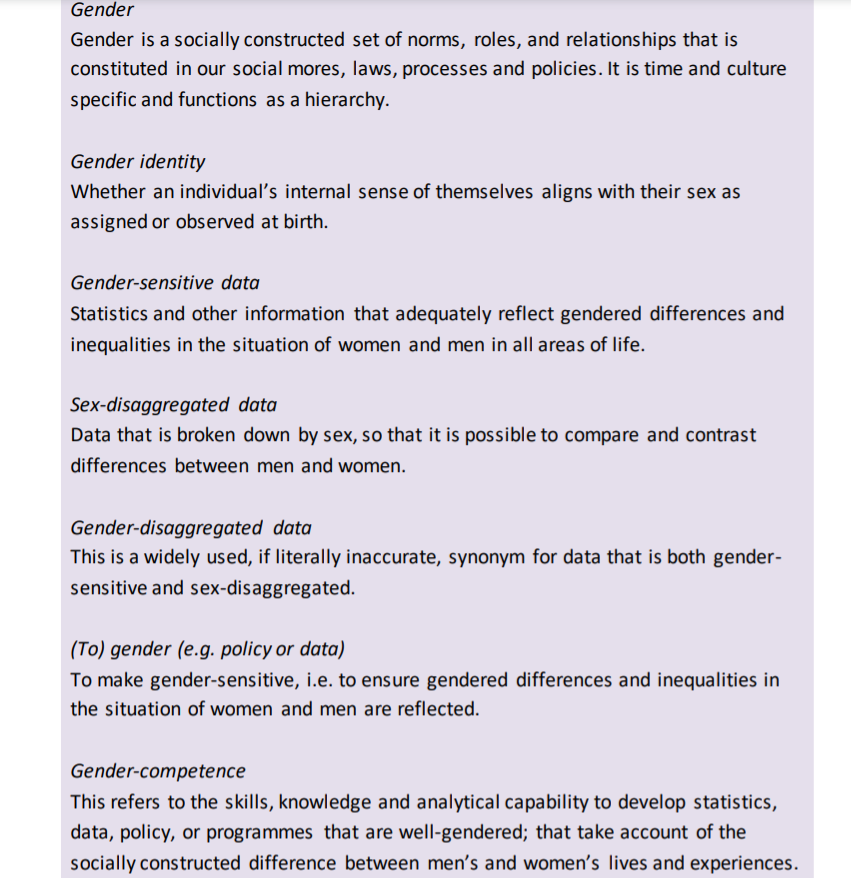Reaction to Lamont amendment
The following was taken from our Twitter thread:
Sadly, today we have seen something of a push-back on Twitter to the amendment to the Forensic Medical Services Bill, including some unpleasant comments or misrepresentations of the motivation of the brave women who raised this as an issue in the first instance.
One of these dirty tactics has been to suggest this is an attempt to derail the whole bill. This is disgraceful fear mongering. The bill is, in the main, excellent & will make things a little easier at a terrible time. No one wishes this not to pass – they just want it perfect.
It has also been said that it doesn’t matter if sex or gender is used. In fact, sex is legally defined and gender is not (although orgs and Gov accept it is distinct from sex), so, if you want legal clarity and for the bill to be future-proofed, it really does matter.
We are aware that the problem has been recruitment and training of female examiners. We also feel that clarity here helps, especially if it gives employers the incentive to ensure they use the Genuine Occupational Requirement in the Equality Act to recruit women.
We fail to see how anyone could possibly object to that. Otherwise, it rather feels like all this is lip-service. If there is an acknowledgement that having a female matters, and if recruitment is key, why not ensure the legislation is worded to ensure that can happen?
We want this bill to pass and we want it to be perfect. We realise that requesting a female examiner is not, currently, a guarantee. That is not a good enough reason, however, to refuse to substitute sex for gender.
It is possible, as others have said, to see a problem in the round. It is possible to acknowledge the need for more female examiners and to ensure that they are recruited according to the Equality Act. In fact, that will help in the long run.
When women say #sexmatters, when they ask for legal clarity over #sexnotgender, when orgs themselves say that access to a female examiner was the most important need, why would anyone make the process of recruitment potentially harder? And why won’t they #believeher? #sixwords
Just some additional points: The funded sector are well aware that sex and gender are different. They even said so in their response to the GRA consultation where they felt the conflation was unhelpful. In this situation, it is surely worse than that.
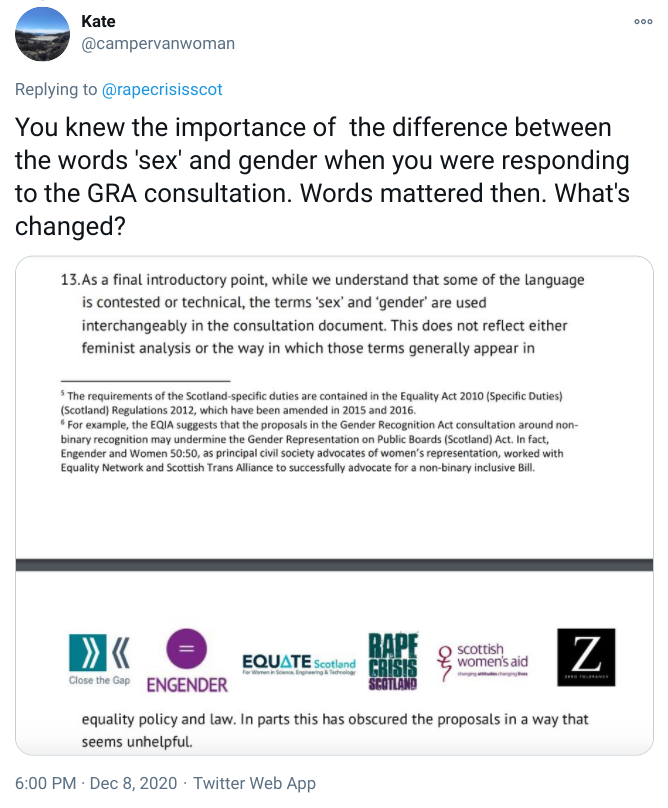
This is how ZT Scotland, another funded org included in the group replies defines gender. It is quite clear they do not consider it interchangeable.
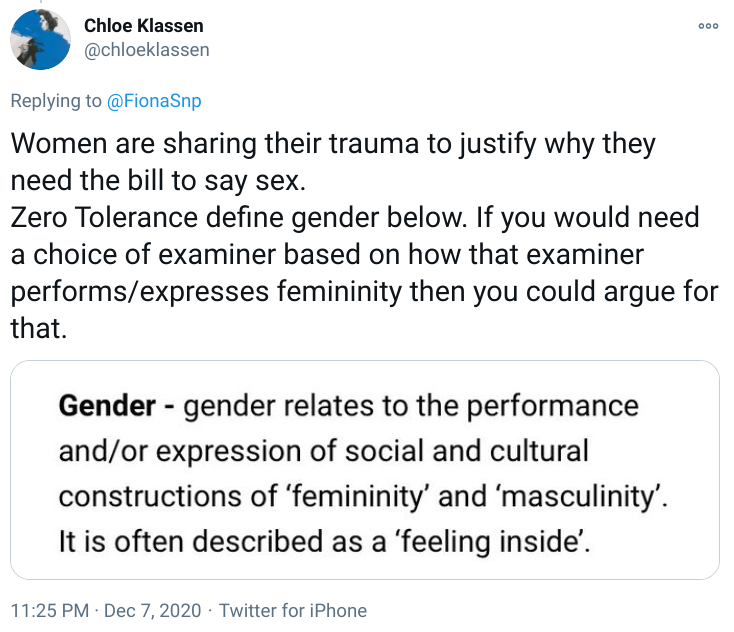
We are increasingly concerned that a small clique sit across several boards and are influencing policy. This seems to be removing the focus from the practical to the political. Certainly, we are hearing that concerns of workers in local centres are not aligned with management.
For example, the director of Engender – who not allow input from members and do not claim to represent women – has a full cv: FM’s Advisory Council on Women & Girls, joint strategic board of Equally Safe, advisory group of Scottish Women’s Rights Centre. She is Chair Rape Crisis Scotland board and the board of the Human Rights Consortium Scotland, and is a member of the board of the European Women’s Lobby.
Here, BTW, is Engender’s submission to the data group with their definitions of sex and gender. Again, it is very clear they think they should be defined differently. What happens to legislation if Gov accepts these? Would they apply to any that uses gender?
The Scottish Gov have pledged not to conflate sex and gender in data. So, again, they understand they are different. Scotsman article.
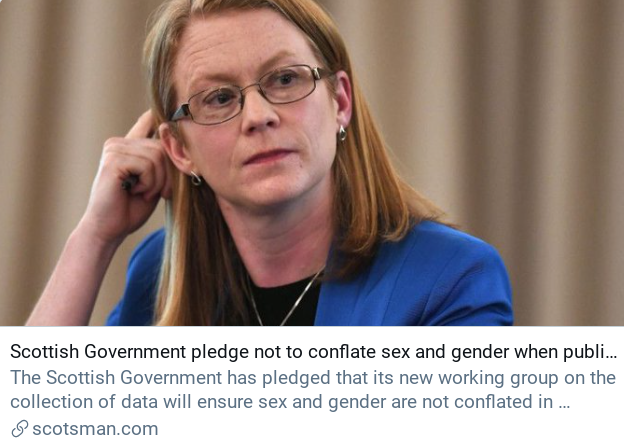
Shirley-Anne Somerville, has said “The protected characteristic of sex in the Equality Act 2010 relates to being a man or a woman. We accept that sex and gender are distinct concepts.“

Perhaps if we had not already learnt not to trust the government when they use the nebulous and ill-defined “gender” in place of the legally enforceable “sex”, they would not be facing this fight. As it is, their track record make us suspicious. Spectator article.
